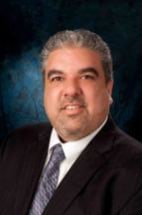Your Trusted Legal Resource
Biography
After receiving his MBA in Finance from the University of Miami and Doctor of Jurisprudence degree from the Florida State University, William Glasko practiced exclusively in the area of Family Law litigation in both Tallahassee, Florida and Miami, Florida from 1999 until 2003. In 2003, William left his family law practice to concentrate exclusively in the areas of Probate, Guardianship, and Trust litigation when he joined Edward Golden. William is uniquely experienced in appellate practice including actions in the areas of probate, guardianship, and domestic relations, including practice in the Florida Supreme Court. William is a member of the Real Property Probate and Trust Law Section of the Florida Bar, and has served as an officer of the Dade County Probate and Guardianship Committee of the Dade County Bar Association. William has traveled to Cuba to represent Cuban national Beneficiaries of Florida Estates. William is an effective and experienced attorney who provides both fervent advocacy, and attentive personal service and counseling. While remaining focused on the and strategic aspects of a case, Mr. Glasko believes that it is important to quickly and sensitively address the personal concerns of clients in these unfamiliar circumstances. The lawyer is often the buffer between the client and the opponent and this relationship requires trust.
Education
- Florida State University College of Law, Tallahassee, Florida
- J.D. - 1999
- University of Miami, Coral Gables, Florida
- M.B.A. - 1995
- Major: Finance
Practice Areas
- Probate Guardianship and Trust Litigation 70%
- Probate Guardianship and Trust Administration 20%
- Appeals 10%
Bar Admissions
- Florida, 1999
- U.S. District Court Northern District of Florida, 1999
Representative Cases
- Jones v. Golden, 176 So. 3d 242 (Fla. 2015), Mr. Glasko prevailed in the Florida Supreme Court in this appeal to defend his previous win in the 4th DCA for which conflict was certified with the 1st and 5th District Courts of Appeal. The issue was the striking of a Creditor's Statement of Claim. Prior to this case, Florida law required that known or reasonably ascertainable creditors must first file a motion for enlargement of time to file any Statement of Claim after the expiration of the statutory 3 month publication period. This Florida Supreme Court opinion created law in Florida to protect known or reasonably ascertainable creditors of estates who do not receive actual notice of their right to file a claim.
- Ripoll v. Comprehensive Personal Care Services, Inc. 963 So. 2d 789 (Fla. 3rd DCA 2007), Mr. Glasko prevailed in this appeal which recognizes the probate court’s inherent authority to monitor a guardianship and to take all action the Court deems necessary, including temporary injunctions, to preserve the assets for the benefit of the beneficiaries, even though ultimate ownership of those assets may be in dispute.
- Maher v. Iglikova, 138 So. 3d 484 (Fla. 3rd DCA 2014), Mr. Glasko prevailed in reversing a trial court order adjudicating a “pretermitted child” as a probate beneficiary. A child was born to the Decedent before the will was executed, but the Decedent did not learn of the child until after the will was executed. Upon learning of the child, an adjudication of paternity was made in the Family Court. The probate trial court found, erroneously, that the child was a pretermitted beneficiary because there was an adjudication of paternity. Glasko correctly argued that, because the parental relationship was not created after the execution of the will, the paternity adjudication merely acknowledges a previously existing relationship. Hence, the child was not a “pretermitted” beneficiary under the statute.
- Bernal v. Marin, 196 So. 3d 432 (Fla. 3rd DCA 2016), Mr. Glasko successfully appealed a Miami-Dade County trial court Order which invalidated a deceased woman's revocation of her Trust. The Decedent instructed her attorney to revoke her Trust, and the attorney attempted to accomplish the revocation through language in the Decedent's Last Will. The trial court refused to recognize the revocation based upon its interpretation of §736.0602 Fla. Stat. On appeal, Mr. Glasko asserted an alternate interpretation of that statute, which was adopted by the 3rd District Court of Appeals. This case created Florida law ,which allows any language in a Will to be used as evidence to demonstrate any Decedent's intent to revoke a Trust.
Classes & Seminars
- Recurring guest lecturer St. Thomas University School of Law
- Guest lecturer Dade County Bar Association
Past Positions
- Marks & West, PA, Attorney
- Bajoczky & Fournier, PA, Attorney
Languages
- English
Professional Associations
- Florida Bar Association, Real Property Probate and Trust Law Sections
- Florida Bar Grievance Committee
Current Employment Position
- Partner

